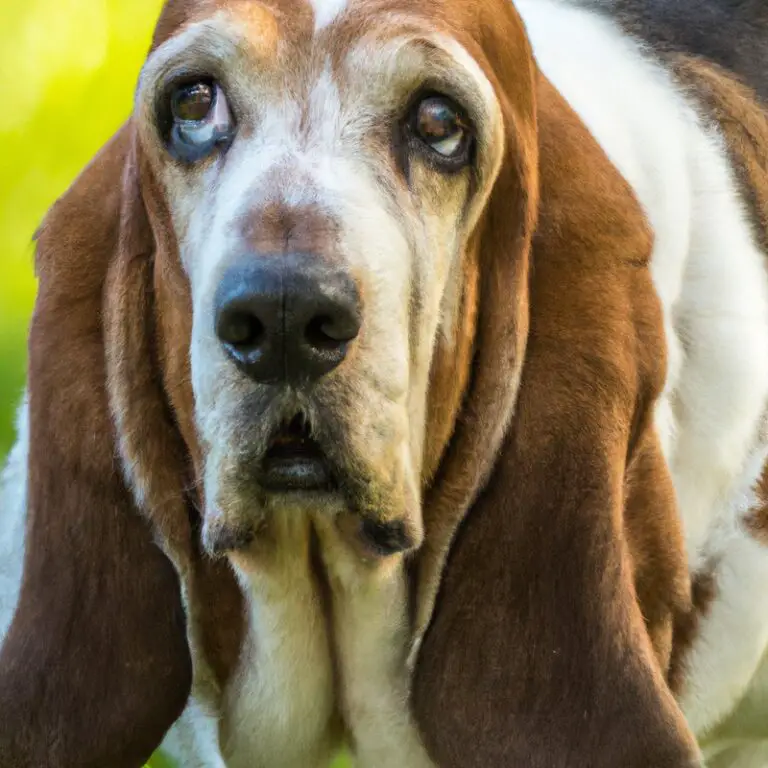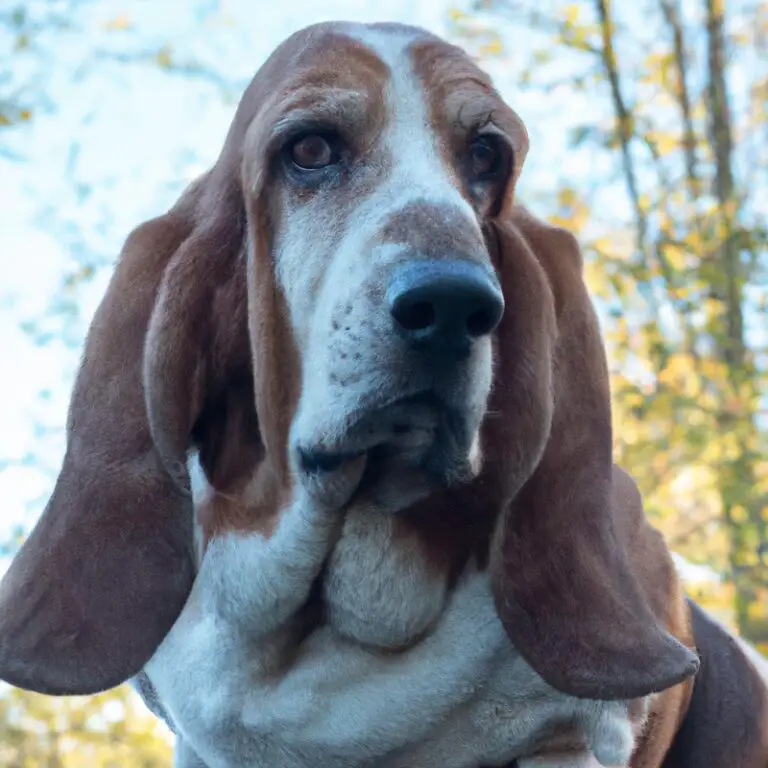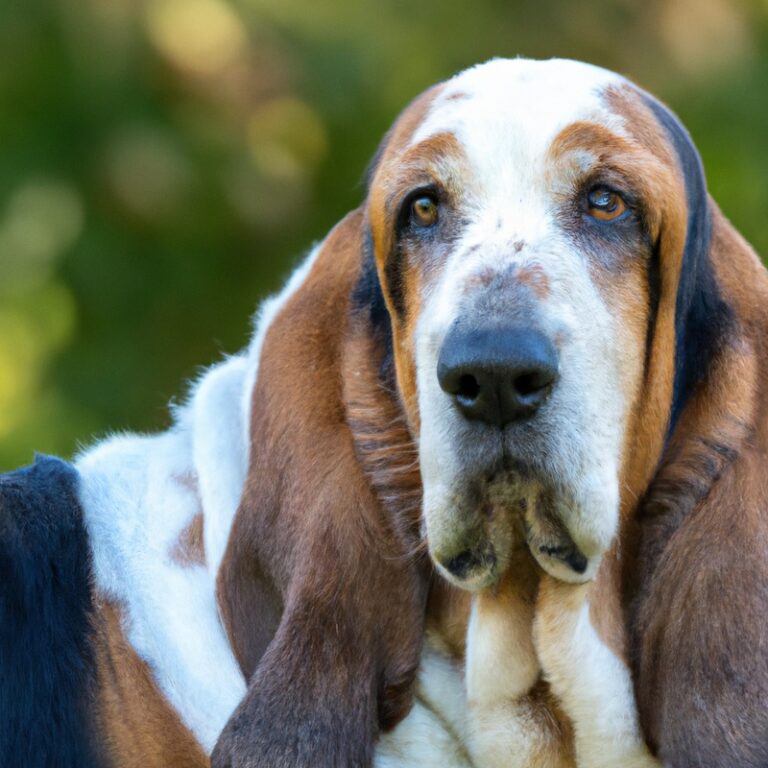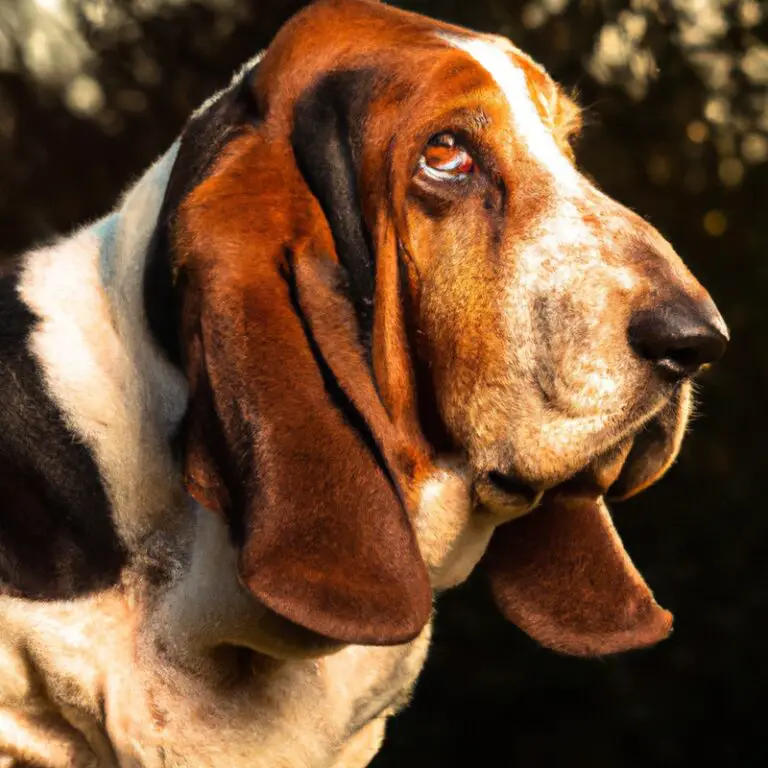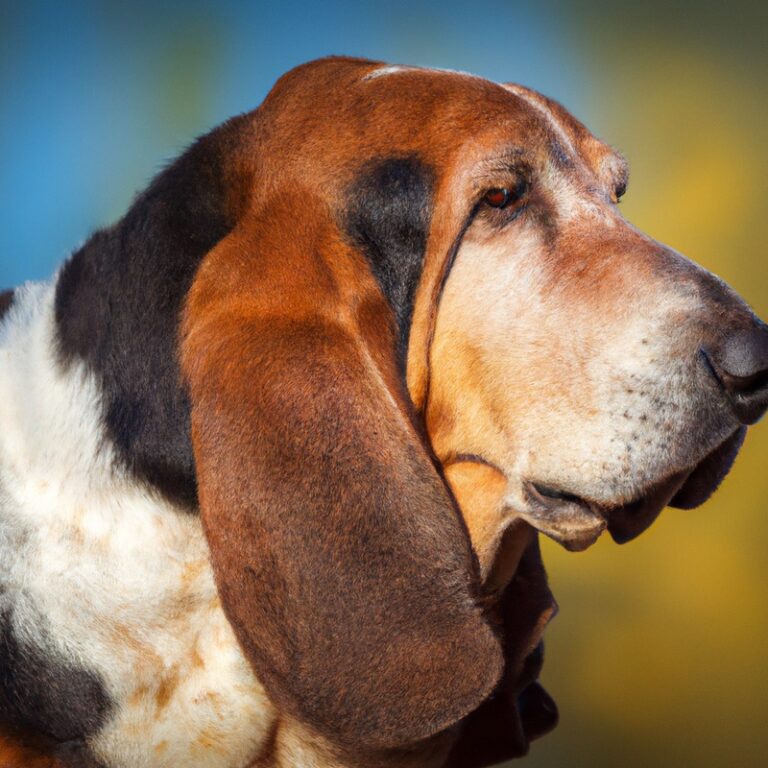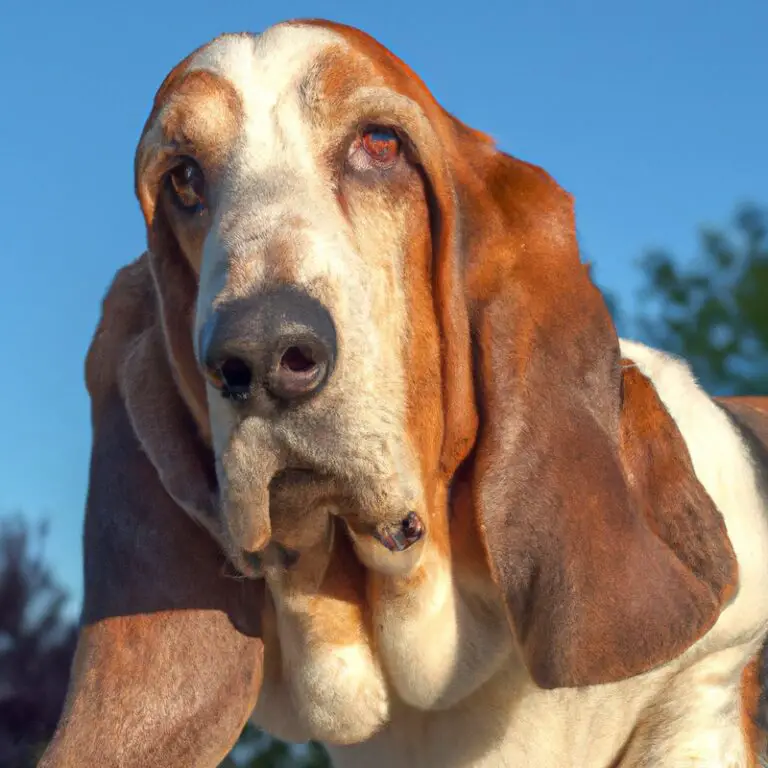Can Basset Hounds Be Trained For Tracking Work?
Key Takeaways:
- Basset Hounds can be trained for tracking work.
- They have a natural instinct for tracking scents.
- Consistent training and positive reinforcement are key.
- Basset Hounds excel in tracking activities, but individual results may vary.
Are you in awe of those extraordinary search and rescue canines, effortlessly tracking scents and finding lost individuals? Have you ever wondered if your beloved Basset Hound could excel in the noble art of tracking work?
Well, my friend, you’ve come to the right place! As a seasoned expert in dog training and behavior, I’m here to explore the potential of these delightful droopy-eyed companions in the world of tracking.
Join me on this thrilling journey as we dive into the history and instincts of Basset Hounds, the different types of tracking work, training techniques, challenges and considerations, and even alternative options. Get ready to discover if your Basset Hound has what it takes to be a tracking superstar!
| Topic | Can Basset Hounds be trained for tracking work? |
| Aspect | Yes |
| Intelligence | Although they are not the most intelligent breed, Basset Hounds can still be trained for tracking work. With consistent and patient training methods, they can learn to track scents. |
| Strong Sense of Smell | Basset Hounds have an exceptional sense of smell, which makes them well-suited for tracking work. Their ability to pick up and follow scents is an advantage in this type of training. |
| Determination | These dogs are known for their persistence and determination. Once they find a scent, they will tenaciously follow it. This trait can be harnessed and channeled for effective tracking training. |
| Size | The Basset Hound’s size can be an advantage in tracking work. Their low-to-the-ground stature allows them to easily follow scents closer to the ground, making them efficient trackers. |
| Aspect | No |
| Strong Scent Distractions | Basset Hounds have a keen sense of smell, but they can also be easily distracted by strong scents. This can sometimes make it challenging for them to stay focused on a specific track. |
| Independence | Basset Hounds can be independent thinkers, which may make it more difficult to keep them motivated and focused during tracking training. Consistent training and positive reinforcement are key in addressing this challenge. |
| Energy Level | While Basset Hounds enjoy moderate exercise, they may not have the high energy levels typically required for tracking work. However, this can be managed with regular training and maintaining their fitness. |
Understanding the Basset Hound breed
History and characteristics of Basset Hounds
The Basset Hound breed has a rich history and distinct characteristics. These dogs were originally bred in France for hunting purposes.
They have a keen sense of smell and were traditionally used for tracking small game, like rabbits.
Basset Hounds are known for their long, droopy ears, short legs, and wrinkled faces. They have a friendly and laid-back personality, making them great companions.
However, they can be stubborn at times, which can affect their training.
Overall, Basset Hounds are unique and lovable dogs with a strong sense of smell.
Natural instincts of Basset Hounds
Basset Hounds have a strong natural instinct for tracking. Their exceptional sense of smell, comparable to that of Bloodhounds, makes them excellent scent trackers.
They were originally bred for hunting small game, such as rabbits, and their ability to follow scents for long distances is inherent to their breed.
Basset Hounds have a tenacious and determined nature, combined with their keen nose, which makes them well-suited for tracking work. They thrive on using their sense of smell to explore and pursue scents, making tracking a fulfilling and instinctive activity for them.
Types of tracking work
Overview of tracking work
Tracking work involves training dogs to follow a scent trail to find missing people, detect contraband substances or locate objects. Dogs are naturally good trackers due to their keen sense of smell.
Different types of tracking work include search and rescue, police and military operations, and scent detection.
It requires focus, discipline, and strong communication between the handler and the dog. The dogs must be trained to stay focused, follow commands, and navigate various environments.
Successful tracking work depends on the dog’s natural abilities, training techniques, and consistent practice.
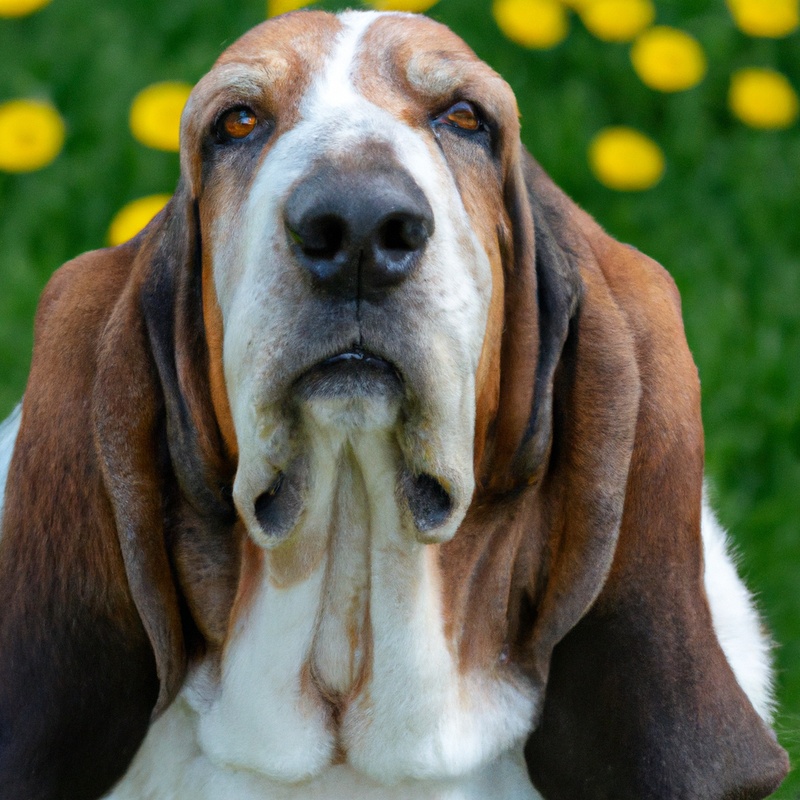
Different types of tracking work
Different types of tracking work include:
- Search and Rescue (SAR tracking: Basset Hounds can be trained to locate missing persons in various environments, such as wilderness or urban settings. They use their keen sense of smell to follow scents and find the person in need.
- Trailing: Basset Hounds excel at trailing, which involves following a specific scent trail left by a person or animal. This type of tracking is often used in law enforcement to locate suspects or find evidence.
- Blood tracking: Basset Hounds have an excellent nose for tracking wounded animals. They can be trained to follow the scent of injured prey, assisting hunters in recovering wounded game.
- Earthdog tracking: This type of tracking involves Basset Hounds locating small animals that have gone into underground burrows. Their natural instincts and compact size make them well-suited for this task.
Each type of tracking work requires specific training techniques and skills, but Basset Hounds have the innate abilities to excel in these areas.
Training a Basset Hound for tracking work
Puppies vs. adult dogs: When to start training
When it comes to training a Basset Hound, it’s important to start at the right time.
Puppies can begin their training as early as 8 weeks old, as they are more receptive to learning and adapting to new experiences.
Starting early helps establish good habits and socialization skills.
On the other hand, adult dogs can also be trained, but may require more patience and time to unlearn certain behaviors.
It’s never too late to start training, but the earlier the better.
Remember to keep the sessions short, positive, and reward-based to make training enjoyable for your Basset Hound.
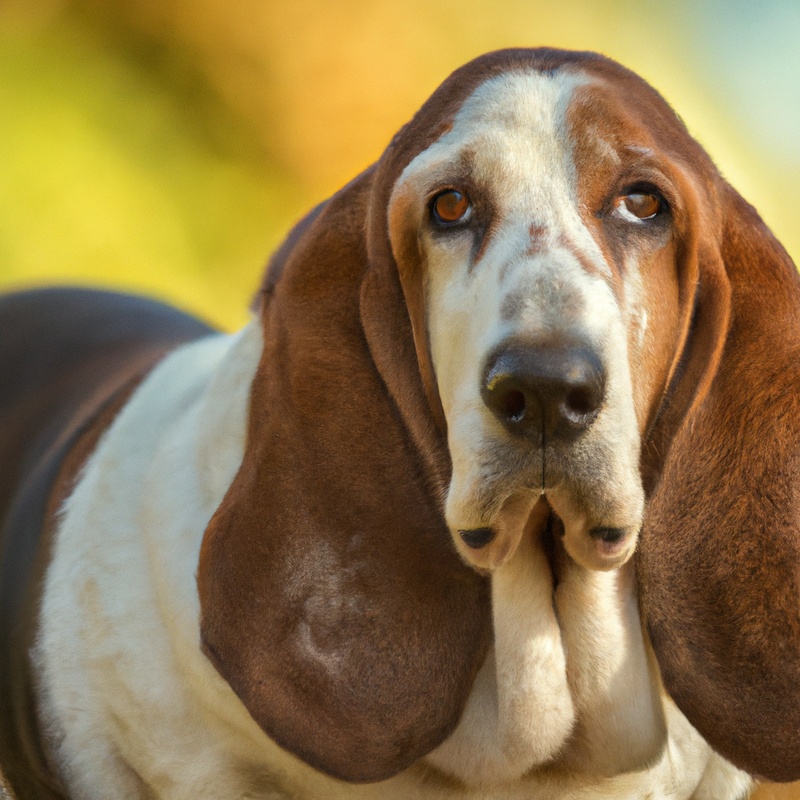
Basic obedience training for Basset Hounds
Basic obedience training for Basset Hounds is essential to ensure a well-behaved and well-adjusted dog.
Start training your Basset Hound from an early age, as they are highly intelligent and eager to please.
Use positive reinforcement methods, such as treats and praise, to motivate and reward your dog.
Focus on teaching commands like sit, stay, and come.
Consistency and patience are key when training Basset Hounds, as they can be stubborn at times.
Remember, short and frequent training sessions work best for these lovable and determined dogs.
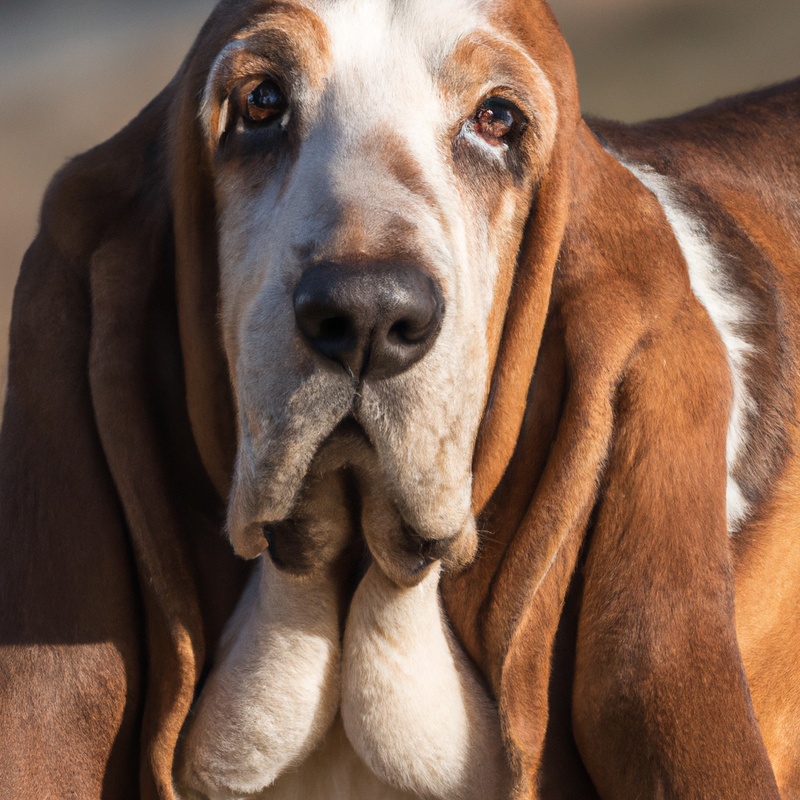
Specific training techniques for tracking work
When it comes to training a Basset Hound for tracking work, there are specific techniques that can be effective.
Here are some tips to consider:
- Scent introduction: Start by introducing the scent that your Basset Hound will be tracking. Allow them to sniff and become familiar with it.
- Positive reinforcement: Use treats and praise to reward your Basset Hound when they successfully track the scent. This will motivate and encourage them to continue the task.
- Gradual difficulty: Start with simple tracking exercises and gradually increase the difficulty level. This will help your Basset Hound build their tracking skills and confidence.
- Proper leash handling: Practice using a long leash to allow your Basset Hound to follow the scent trail while you maintain control. Use gentle leash guidance to keep them on track.
- Consistent training sessions: Regular and consistent training sessions are key to success. Make sure to dedicate time for tracking exercises to help your Basset Hound develop their tracking abilities.
Remember, every dog is unique, and it may take time for your Basset Hound to become proficient in tracking work.
Be patient, stay positive, and enjoy the training process with your furry companion.
Challenges and considerations
Patience and persistence: Dealing with the Basset Hound’s stubbornness
Dealing with a Basset Hound’s stubbornness requires patience and persistence.
These dogs have a strong-willed nature, and they may not always respond quickly to training or commands.
It’s important not to let frustration get the best of you.
Stay calm, be consistent with your training methods, and use positive reinforcement techniques.
Allow the dog enough time to understand and follow your instructions.
Remember, building a strong bond with your Basset Hound is key to overcoming their stubborn tendencies.
Physical limitations: Addressing the Basset Hound’s short legs and heavy build
The Basset Hound’s short legs and heavy build can pose physical limitations when it comes to tracking work.
However, there are ways to address these challenges:
- Utilize scent pads or elevated surfaces: By using scent pads placed at a higher level or elevating the tracking surface, you can make it easier for the Basset Hound to access and follow the scent.
- Adapt training methods: Modify traditional tracking techniques to suit the Basset Hound’s physical attributes. This may involve using shorter tracks, focusing on shorter distances, and incorporating more frequent breaks during training sessions.
- Conditioning and exercise: Regular exercise and weight management are key to maintaining the Basset Hound’s physical health. By keeping them in good shape, you can help minimize the impact of their heavy build on tracking performance.
- Patience and understanding: Recognize that the Basset Hound’s physical limitations may require more time and patience during training. Adjust expectations accordingly and provide ample positive reinforcement to keep them motivated.
While physical limitations should be taken into consideration, Basset Hounds can still excel in tracking work with the right training, adaptations, and understanding of their unique characteristics.
Environmental factors: Navigating distractions while tracking
Tracking work with a Basset Hound can be challenging due to distractions in the environment.
Basset Hounds have an incredibly keen sense of smell, but they can also easily get distracted by sights, sounds, and smells around them.
To navigate these distractions while tracking, it’s important to create a focused and controlled training environment.
This can involve training in quiet areas initially and gradually introducing distractions.
Additionally, using rewards and positive reinforcement can help keep your Basset Hound motivated and focused during tracking exercises.
Alternatives and specialization
Other breeds commonly used for tracking work
Other breeds commonly used for tracking work include German Shepherds, Bloodhounds, Labrador Retrievers, and Belgian Malinois.
These breeds are known for their exceptional tracking abilities, high scent detection, and overall trainability.
German Shepherds are often utilized in law enforcement and search and rescue operations due to their intelligence and versatility.
Bloodhounds, with their incredible scenting skills, are often employed in missing person cases.
Labrador Retrievers and Belgian Malinois are also popular choices for tracking work due to their athleticism and strong work ethic.
Each breed brings its own unique strengths to the field of tracking work.
Specialized training and certifications for Basset Hounds in tracking work
Specialized training and certifications can greatly enhance a Basset Hound’s tracking abilities.
One option is to enroll your dog in a professional tracking training program specifically tailored for Basset Hounds.
These programs focus on honing their natural instincts and teaching them advanced tracking techniques.
Additionally, certifications such as the AKC Tracking Dog (TD) title can validate your Basset Hound’s tracking skills.
To earn this title, your dog must demonstrate their ability to track and find a specific scent over a designated distance and terrain.
By investing in specialized training and pursuing certifications, you can ensure that your Basset Hound is well-prepared and recognized for their tracking abilities.
Final Verdict
I firmly believe that Basset Hounds can indeed be trained for tracking work. Their history as scent hounds and their natural instincts make them well-suited for this type of work.
While their stubbornness and physical limitations may pose challenges, with patience, persistence, and proper training techniques, they can excel in tracking tasks.
It is important to start training early and focus on basic obedience before moving on to specific tracking training. Additionally, it is worth exploring alternatives and specialized training options to enhance their tracking abilities.
With the right approach, Basset Hounds can become reliable and skilled tracking dogs, showcasing their incredible scenting abilities.

